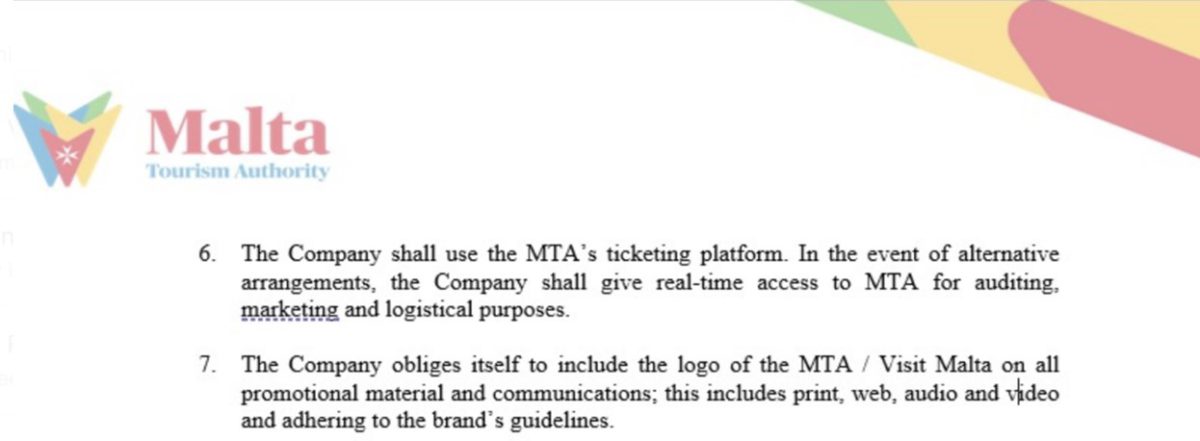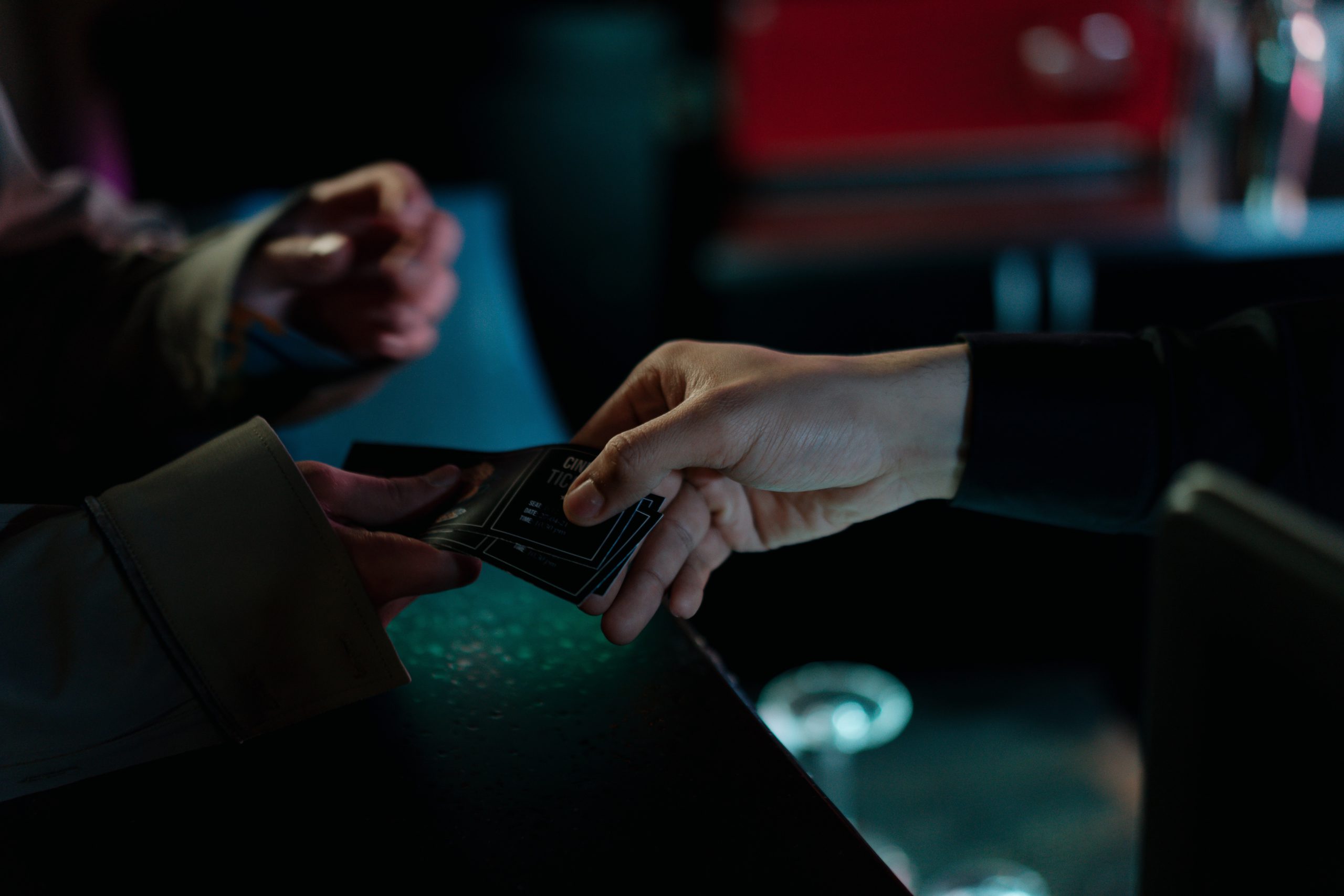Malta largest two event ticketing companies have expressed their anger and frustration over the Malta Tourism Authority’s (MTA) assistance to a private operator to muscle in on their sector, describing the move as “extremely unfair” and “very concerning”.
Last week, The Shift revealed that the MTA is pushing beneficiaries of its sponsorships to use its in-house ticketing platform, raising concerns that the state agency is effectively competing with private business.
The investigation found that the platform used on the MTA’s key promotional outlet, Visit Malta, is accessible through maltashows.com, which shares an IP address with 356 Entertainment Group, whose shareholders are close associates of the MTA’s Sponsorship Committee Head, Lionel Gerada.
The same IP address hosts other projects related to the group, such as creamfieldsmalta.com, summerdazemalta.com, and medcannworldforum.com, which refer to events run by 356 Entertainment Group’s Nicholas Spiteri, Gerald Debono, Trevor Camilleri, and Edward Zammit Tabona.
Mr Gerada landed in hot water when his ties with the organisers were scrutinised by the Public Accounts Committee last year, but he retained his position.
Mr Gerada’s appointment to his role in charge of MTA sponsorships by disgraced ex-Minister Konrad Mizzi coincided with a tripling of the sponsorships handed out by the committee, €2 million of which were granted to 356 Entertainment Group and its associates.
Mr Gerada was entrusted to handle the multi-million euro fund despite having a criminal record for embezzlement of funds, falsification of documents, and using false names. In their submission to the Public Accounts Committee, his lawyers state that their client admitted to “some minor criminal offences” when he was only 18, describing it as “teenage folly”.
When BusinessNow.mt reached out to the two leading private ticketing platforms in Malta on the matter, both ShowsHappening and TicketLine indicated that the development looks a lot like unfair competition, and highlighted aspects which are of particular concern.
“We’ve been trying to work with the Government for eight years,” says Stefan Debattista, co-founder of ShowsHappening. “We have spent nine years building a business in the most genuine, and difficult, way possible. Now our competition is the state.”
He explains that no request for proposals, quotations, or any tender process was involved in the development of its own ticketing platform, describing it as a “deal struck behind closed doors”.
“In 2017 I had even sent an email to the MTA to propose integrating tickets into their website. At the time it seemed like it fell on deaf ears,” he says, before pointedly asking: “Or did it not?”
Wesley Ellul, co-founder of TicketLine, the other big booking platform on the local scene, described the move as “anti-competitive for all involved”.
“It’s anti-competitive as a ticketing company, and more so as a producer,” and adds that the concerns with the system go beyond the fact that it was created without tender.
He refers to the MTA’s contract for beneficiaries of its sponsorships, which states that they “shall use the MTA’s ticketing platform”. The clause continues: “In the event of alternative arrangements, [beneficiaries] shall give real-time access to MTA for auditing, marketing and logistical purposes”.

While acknowledging that the collection of certain data is understandable in view of Visit Malta’s remit to improve the tourism package through its sponsorships, Mr Ellul says the lack of information on which precise data it wants access to, and why, is “very concerning”.
“If they need summarised data on demographics of people purchasing tickets, or where they’re from, or how people came to land on the ticketing page from a web traffic point of view – that’s one thing,” he says, noting that these data could be used to ascertain that the sponsorship money was used properly.
“However,” he continues, “if the MTA is asking for specific data on who is purchasing tickets, their contact details, how much they are spending, and who they are attending with… Well, that’s a whole other thing.”
He explains that this information means that producers would be effectively handing over their client list and financial figures to the state.
“This is especially problematic should the Government encourage another promoter to do a similar event, creating more competition for the organiser,” says Mr Ellul.
“Moreover, the client purchasing the ticket would have the personal data exposed, giving details to the Government which they may not wish to hand over,” he argues.
“As an individual, would you like the Government to have your contact details? Your email address? Who you attended an event with?”
Mr Debattista agrees, and points out that the MTA’s using of customers’ data for its own marketing “would be unfair on the ticket buyers”.
But ticket buyers are not only losing their data – the platform is also a bad deal for them, taking an eight per cent fee that is substantially higher than the industry standard of five per cent.
Mr Debattista says his company has always charged less than that amount for large events, and contends that the total fee might be higher.
Mr Ellul meanwhile describes the fee as “extremely high”, saying his company’s average booking fees are around the five per cent mark for smaller events, and possibly even lower for large scale events.
“To the end client who is paying for this,” he says, “there is no difference in service [despite the higher fee]. They get the same features: a ticket purchased online, verified at the door, with customer service in case of problems.”
“So why should the end client choose to pay more for the same thing? From a practical standpoint there is no reason.”
“What the MTA should be doing,” asserts Mr Debattista, “is helping ShowsHappening and TicketLine showcase our events onto their website, and helping us push those adverts to incoming tourists.”
“But that would be too logical and fair,” he says. “And where would that booking fee money go?”
Mr Ellul is of the same mind: “Higher booking fees from the public mean more money coming in – but not from Government bank accounts. This money will likely never be audited and scrutinised by the Government spending committees because it never came from the Government and likely doesn’t feature on accounts.”
He points out that this opens the door to possible abuse – “something our Government truly doesn’t need right now with the whole greylisting issue.”
“Ultimately,” continues Mr Debattista, “we pride ourselves on giving an impeccable service to all our clients and ticket buyers. They find as available during the day, night and weekends We have always been there to assist promoters and ticket buyers.
“The T&C on visitmalta.com reads like a business – not the Malta Tourism Authority. A business that is directly competing with us.
“What the MTA is doing to us is extremely unfair.”
Rain or not, Malta dines out: How bars and restaurants fared on New Year’s Eve
Rain on New Year’s Eve led to cancellations, but deposits helped stabilise bookings
Scam communications: Cutting through the noise
MCA analyst Alistair Farrugia explains what businesses can do to cut through the ‘noise’ created by scams
2025: Three experts on the year technology outpaced certainty
Daniel Thompson-Yvetot, Simon Azzopardi and Keith Cutajar on the year that passed and the year ahead.






